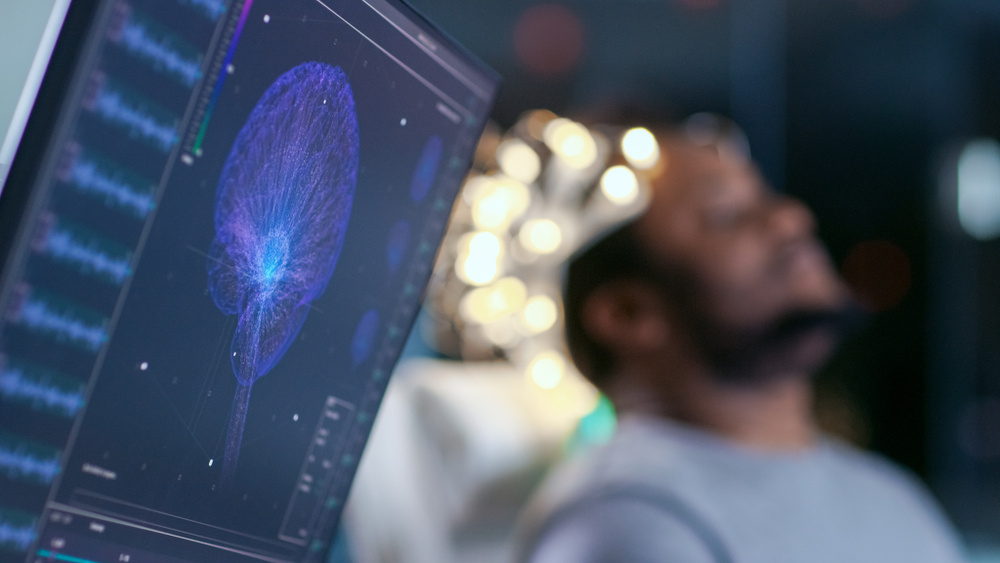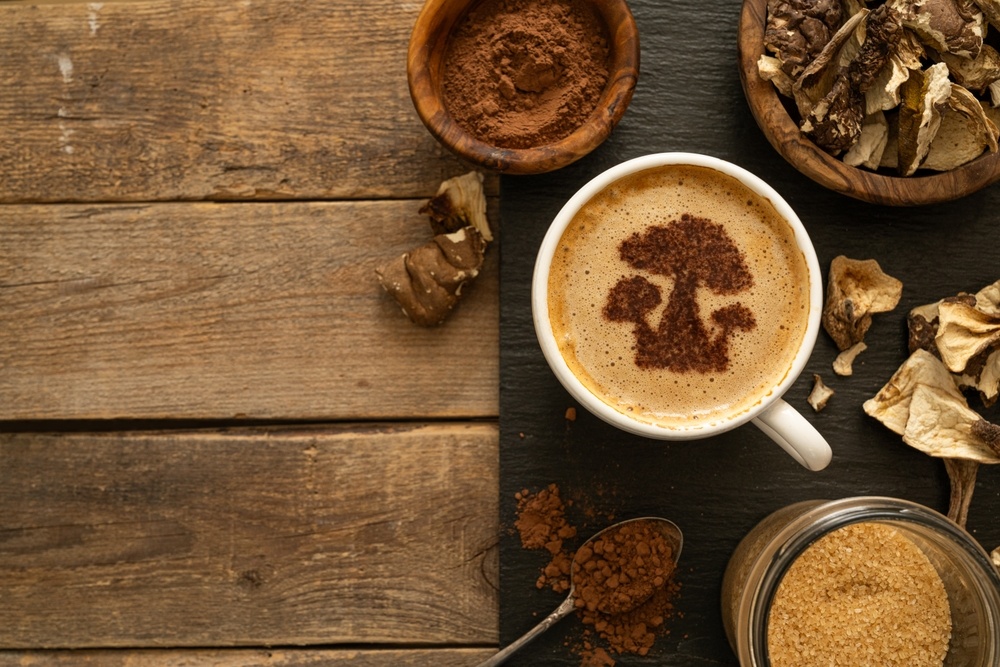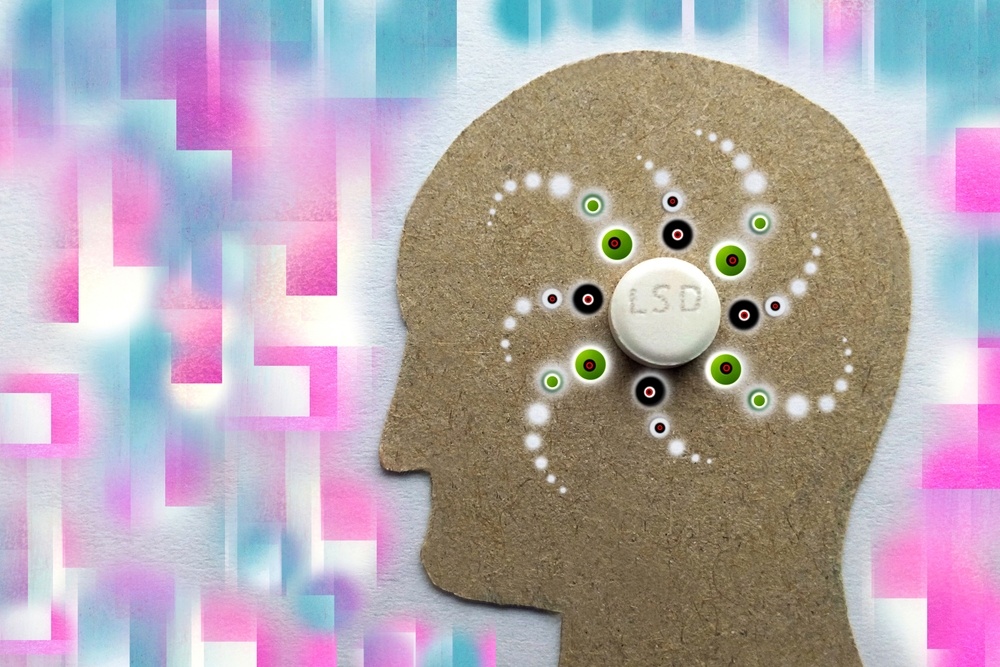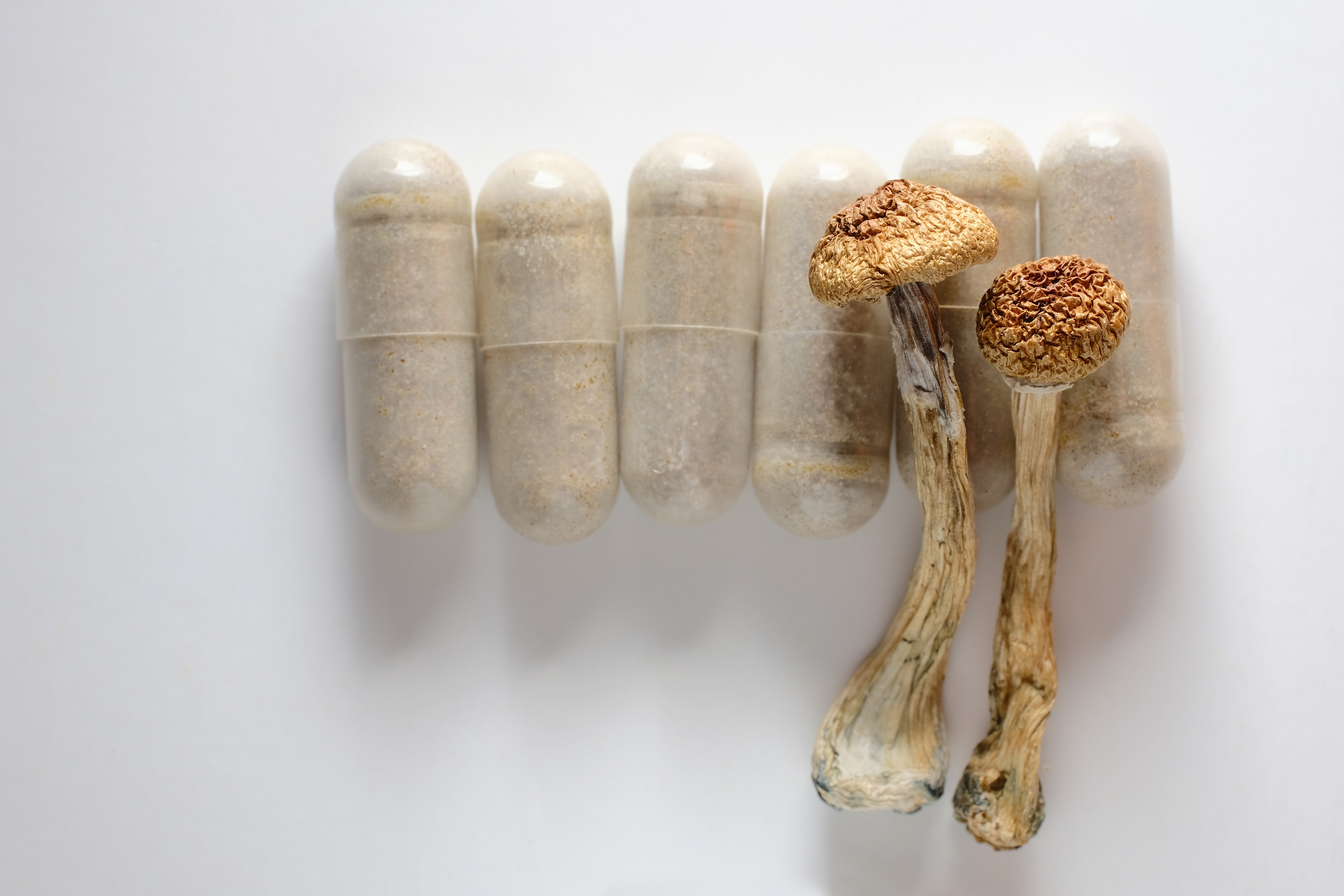Mushrooms containing the psychotropic substance psilocybin, aka "magic mushrooms," are one of humanity's oldest recreational drugs. We've been tripping on shrooms since prehistoric times, and some researchers think they may have even aided in the development of early human society - much like beer brewing did.
Despite that, many aspects of psychedelic mushrooms still remain mysterious - such as what happens when you sleep on shrooms. It seems that questions like "Can I take mushrooms before bed?" should be easy to answer, but the answers so far have been surprisingly contradictory.
With psychedelic drugs now being investigated for a wide range of potential medical benefits, this is a topic worth digging into. Can you sleep on shrooms? Is it a good idea? Are there any benefits? Let's look at what psychedelic mushrooms do to the brain, and why it's so hard to figure out what happens if you fall asleep on shrooms.
The Magic of "Magic Mushrooms"
One basic thing separates psychedelic mushrooms from other types of mushroom: the chemical psilocybin. More than 200 known species produce this chemical naturally.
When psilocybin is consumed, the body quickly converts it into psilocin, which is a powerful hallucinogenic substance. The psilocin works by affecting the brain's serotonin receptors, which in turn influence a wide variety of behaviors including mood, sleep, and cognition, as well as physical reactions. The interactions here are quite complicated, which is one of the things that makes magic mushrooms so hard to study.
In practical terms, the "trip" given by psilocybin mushrooms works in similar ways to LSD. There are visual and auditory hallucinations, mood swings, and (typically) euphoria, but also with the potential for bad trips or unpleasant physical side effects such as vomiting.
One common observation from users is that a mushroom trip can feel like a waking dream. So it's easy to see how some people would wonder what happens if you try to fall asleep on mushrooms.
A Dream Within a Dream?
The idea that mushroom trips are similar to sleep is backed up by science. This 2014 study, putting users in an MRI machine to look at their brain patterns, saw definite similarities.
However, among users, even the question of whether you can fall asleep on shrooms is controversial. The onset of a psilocin trip tends to produce a burst of adrenaline, the wake-up hormone which is an enemy of sleep. Yet others find that mushrooms make them sleepy, especially as the trip goes on.
One recent study, from 2020, found that psilocin does cause some changes to sleep patterns. In short, users tended to take longer to go to sleep, and also spent less time in REM (Rapid Eye Movement) sleep, when dreams are most likely to happen. However, the users themselves did not seem to perceive anything wrong with their sleep, and woke up refreshed.
So, at the least, it does not seem that falling asleep on shrooms will hurt your sleep very much. That said, overall, the evidence points to shrooms not helping with sleep, and maybe making a minor negative impact by delaying REM sleep.
Subjectively, people who do go to sleep on shrooms tend to report extremely intense dreams. We've seen reports (anecdotal, of course) of people feeling 'trapped' in their dreams, or having difficulty discerning when they've woken up. This would seem consistent with psilocin's overall effects on the brain.
Is There A Benefit to Sleeping on Shrooms?
Right now, the answer is "not that we know of." Of the little official research that's been done, there hasn't been any link shown between shroom-sleep and improved mental outcomes. The insights and potential psychological benefits of taking shrooms also don't seem to be affected much either way.
Given the difficulty of getting to sleep on shrooms in the first place, and the potential for very weird dreams, this is probably something that will only appeal to people looking for unusual psychedelic experiences. If you happen to be able to lucid dream, all this does suggest some interesting possibilities. But we'll leave that to the oneironauts to experiment with on their own time.
Plus, of course, we must point out that psilocybin is an illegal drug in America, and in most other places around the world. This status is controversial, and shrooms are high on the list of substances that many people think should be legalized. But, for now, you will probably be taking legal risks if you want to experiment with shrooms at night. Be sure to check your local laws and understand the risks if you're considering magic mushrooms.
Can Other Mushrooms Help You Sleep?
There's one more category of mushrooms worth discussing here - medicinal mushrooms. Mushrooms have been a key ingredient in traditional medicine systems for thousands of years, particularly Chinese medicine.
These mushrooms do not contain psilocybin, but they are also not typically eaten as food, due to being tough or unpleasant-tasting. However, when dried or powdered, there is some evidence that particular medicinal mushrooms may work as soporifics.
In particular, Reishi mushrooms (also called lingzhi) are often cited for promoting sleep, and they have received some scientific attention. This 2007 rodent study showed some potential for these mushrooms to affect sleep, and may be able to improve time-to-sleep as well as extending REM sleep duration. However, the results were mixed, and rodent reactions do not always carry over to humans. Another study, from 2005, showed that Reishi extract may help with combating the fatigue that comes from clinical depression.
However, consult your doctor before trying Reishi or other medicinal mushrooms. They can interact negatively with drugs such as NSAID painkillers or high blood pressure medications.
In Short: We Need More Research on Shrooms
It'd be nice if we could give more concrete answers about sleep on shrooms, but this is a topic that just hasn't received enough research. At the least, you're unlikely to have particularly bad effects if you want to try it out for yourself. Further, tolerance for psilocybin shrooms is slow to develop, and there are no significant side-effects from withdrawal. These are low-risk drugs.
But as always, do your research and think carefully before experimenting with psychedelic substances.





